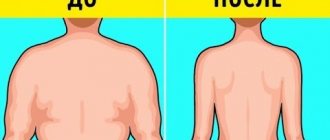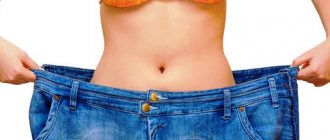Psychologists very often face the problem of food addiction. When the question arises of how to give up sweets and starchy foods, the psychology of losing weight will help you find a way out. You can cope with addiction, overeating, and excess weight if you find the right approach and determine the reasons for such behavior.
Why are sweet and starchy foods harmful?
The dangers of refined sugar and flour have been talked about for a long time. Some people call sugar a poison and attribute many dangerous properties to it. First of all, you need to clarify that sugar is found in almost all food products. Fructose and glucose are also considered sugar, so you don’t need to go on too strict diets, this will lead to serious exhaustion and even greater psychological problems.
It is refined sugar in large quantities that causes great harm to the body (chocolate, ice cream, cookies and other sweets), as well as baked goods, biscuits, etc. However, they often become the main addiction for people with psychological problems.
It is necessary to clarify how all of the above harm human health:
- Sugar contributes to the leaching of beneficial minerals from the body, and therefore often leads to caries and tooth decay, as well as increased bone fragility.
- It has long been known that uncontrolled consumption of sweets leads to skin problems. Pimples, blackheads, comedones appear on it, and greasiness increases. In addition, the destruction of collagen, which is necessary to maintain youth and elasticity of the dermis, accelerates.
- In both women and men, sweets can trigger the occurrence of thrush (candidiasis). Candida is always present in the body, but yeast, which is found in flour and sweet foods, creates a favorable environment for their proliferation.
- There is an opinion that an abundance of sugar also negatively affects the sexual sphere, as it provokes various hormonal disorders.
- Of course, we must not forget about such a consequence as excess weight. It leads to psychological and physical problems, complexes and chronic diseases.
- People with a sweet tooth often face causeless fatigue. Sweets give you strength and energy for a very short period of time, and then the opposite effect appears. The person feels tired and overwhelmed.
There is no benefit from such food. However, this does not mean that you should completely give up everything that contains sugar and flour. It will be enough to get rid of simple carbohydrates and foods that do more harm than good.
When it comes to how to stop eating sweets, psychology does not provide a universal answer. There are many reasons leading to addiction and overeating. Therefore, the solution to the problem is selected individually.
What is sugar
Even ardent opponents need to understand that completely eliminating this product from the diet is unrealistic. It is one of the fundamental molecules necessary for the normal life of any protein body, is part of DNA and serves as “fuel” for the body’s cells.
The concept of “sugar” is heterogeneous. A number of molecules with a similar structure are usually classified as sugars. These are glucose, galactose and fructose, consisting of one molecule, as well as their compounds:
- maltose, consisting of two glucose molecules;
- lactose, consisting of galactose and glucose molecules;
- sucrose, which contains 1 molecule of glucose and 1 molecule of fructose - what we used to call table sugar.
And this is not a complete list!
All these substances belong to the category of carbohydrates. This also includes polysaccharides, which contain a large number of molecules. The group of polysaccharides includes fiber, starch, cellulose and chitin.
During the digestion process, the vast majority of carbohydrates are broken down into simpler molecules. Thus, the “good” and “bad” carbohydrates will eventually be broken down into simple sugars.
However, the more complex the structure of the molecule, the longer it takes to break it down and absorb it into the body. It is clear that “simple” sugars will be broken down and absorbed faster. Therefore, it is customary to divide carbohydrates into “simple” and “slow”.
Knowing what it is, the answer to the question of whether it is possible to completely give up sugar will be unequivocal: no, it is unrealistic, and it is not necessary.
Symptoms of food addiction
Many people simply do not realize that they have problems. Sugar and baked goods are considered normal foods that are present in the diet of almost every person. However, food addiction can be identified by the following signs:
- without sweets there is no feeling of fullness;
- in the absence of sweets, drowsiness, a feeling of fatigue, and apathy appear;
- It’s impossible to give up chocolate or cake even while on a diet;
- a person cannot stop while eating any buns or sweets;
- the addict does not refuse sweets even when obvious problems with weight, digestion, or health in general appear;
- there is a feeling of fear, discomfort, nervousness if there is nothing sweet in the house;
- any image or mention of delicious things makes you want to eat.
The main feature of an addict is eating food not only when hungry. Everyone is familiar with the feeling of hunger - a churning in the stomach, salivation, a feeling of emptiness in the stomach. However, a food addict eats even when his stomach is full and his brain does not signal hunger. This means that food is consumed with the aim of obtaining psychological satisfaction, distraction or experiencing positive emotions.
How not to lose your temper: 3 tips from personal experience
- Give yourself time to establish the habit. Not the notorious 21 days, but 3-12 months of complete refusal. The body has been receiving huge amounts of fast glucose for decades, and now it is learning to extract energy from other sources. The less refined sugar and harmful foods were in the diet, the faster the body will build a new scheme for obtaining glucose from vegetables and fruits. If you have sweets in every meal in huge doses, hold on as long as possible after you move to stage 4. A year is your minimum. The taste buds will get used to the sweetness of the fruit, and against their background, previously favorite sweets will become terribly cloying. Forbidden foods and sweets may appear in the diet as an exception - for example, a piece of cake at a wedding. The normal frequency is maximum once every 2-3 months. Once a month or more often is an “alarm signal.”
- Use the one day rule. Think about why you want sweets. Promise yourself to eat a cake/cookie/drink vanillacino at Starbucks (substitute as necessary) tomorrow. Repeat the next day. Over time, the craving for sweets will weaken and then disappear.
- Learn more about your body. How it works, what reactions occur inside, how the body absorbs vitamins and microelements, what prevents this. Notice the improvements in your well-being, even the smallest ones. Personally, I have a “scanner” constantly turned on, which monitors the state of the body and notes changes and the relationship between well-being and food.
Along with sugar, the constant feeling of hunger, dental problems, apathy and headaches went away, the condition of the skin and nails improved, and the blood vessels were less visible. It has become easier to fall asleep and wake up, the recovery time has decreased - 7 hours instead of 8-10, as before. Increased concentration. The taste of food was enriched - even steamed whole oatmeal without additives acquired a nutty hue, vegetables and fruits became tastier.
Causes of addiction
Not everyone can independently understand the causes of overeating and food addiction or admit that there is a problem. It is advisable to be examined by doctors and visit a psychologist to find out why the attachment to food arose. Experts say that sweets are practically a drug. After giving up refined sugar, you may experience real withdrawal symptoms.
The causes of addiction to sweets and starchy foods are often psychological, but there are also physiological ones. So, it is easier to become a victim of food addiction if there are metabolic disorders or hormonal imbalances. Hereditary predisposition to this addiction plays an important role. With hypotension, the brain does not have enough glucose, so a person has an irresistible craving for sweets.
Psychological causes of addiction may be the following:
- the habit of rewarding oneself with sweets and tasty foods since childhood, instilled by parents;
- the habit of distracting from bad thoughts and emotions with food;
- uncontrollable cravings for food during times of stress and extreme anxiety;
- staying on a diet for a long time and, as a result, a strong craving for what is not allowed.
The essence of addiction is that sweets and starchy foods are no longer perceived as food, but as a solution to problems or a source of joy. In the human mind, food turns into a drug, without which life seems gray and boring. In fact, refined sugar and baked goods do not increase self-confidence or calm you down. This is only a temporary and unhealthy replacement for more effective methods of solving the problem. Therefore, in case of such dependence, it is recommended to contact a specialist.
Is it worth it and is it possible to refuse completely?
Is it possible to completely and abruptly refuse? There are often debates about whether sugar is a drug or not? We, of course, do not see any practical meaning in this, just to scratch the tongue. Technically, of course, sugar is not a drug, but there is a dependence on it, both psychological and physical (dopamine), and it does not get any easier from the fact that sweets cannot be included in the list of prohibited substances (imagine if you were imprisoned for distributing chocolate bars) .
Why do we love sugar so much? More precisely, not us, but our brain. Because it is tasty, affordable, gives us quick energy, helps relieve stress and store fat. In addition, glucose is the “food” for our mind. Even scientists admit this: a person’s love for sugar was born in the process of evolution - on an instinctive level, because more high-calorie food gives a greater chance of survival.
Interesting : even the simple aroma of something sweet excites the brain, and only the smallest amount of sugar makes its work more productive and faster - this has been proven experimentally with the help of volunteers.
It is simply impossible to completely give up sugar, otherwise the changes in the body will be very powerful. Technically, glucose is found in cereals, vegetables, and fruits, i.e. those foods that we consider healthy and are unlikely to give up. And in general, what are you going to feed your brain? Without sugar, your productivity can drop significantly, as well as your willpower, because... the prefrontal cortex , which is responsible for planning, resilience and solving important problems, if there is a lack of nutrition, it will simply force you to eat something very sweet, high in calories and it is unlikely to be buckwheat.
That’s why breakdowns and gluttons are so common on complete zero-carbohydrate diets - the body just wants to get energy to work.
Everyone has their own reasons for giving up sugar, but in any case, you must remember that the main thing in this situation is to do no harm!
Why is it necessary?
Why should you give up sweets? Because you want it











